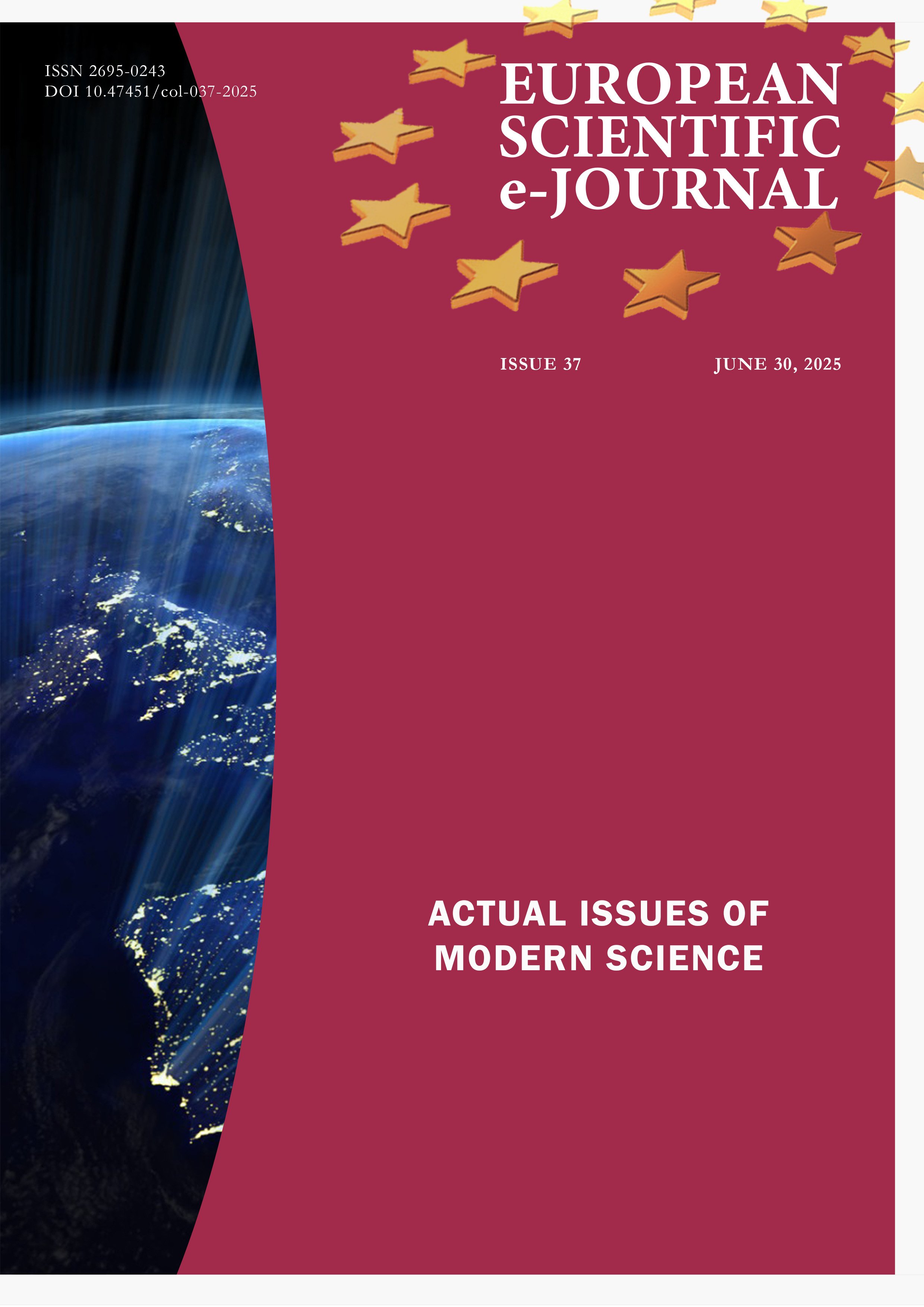Modern Educational Trends in Agricultural Engineering: The Experience of the Czech Republic
DOI:
https://doi.org/10.47451/tec2025-09-04Keywords:
agricultural machinery engineering, agro-engineering, higher technical education, innovative educational approaches, dual education, digital technologies, industry cooperationAbstract
The article provides a comprehensive analysis of current educational trends in training engineering specialists for agricultural machinery, using the Czech Republic as a case study. The object of the research is the system of higher technical education in agro-engineering in the Czech Republic, which covers areas such as mechanization, digital technologies, dual education, and industry partnerships. The aim of the study is to identify innovative educational approaches, quantitatively assess their effectiveness, and develop recommendations for possible adaptation in Ukraine. The methodological framework includes a comparative analysis of educational programs of leading Czech and Ukrainian universities, content analysis of scientific and reporting materials, statistical data processing (in particular, student and graduate numbers, salary levels), as well as expert evaluation of transfer prospects. The research draws on the work of Czech educators and international experts in engineering education. The results demonstrated that in the Czech Republic digital laboratories and simulation complexes are actively operating, dual education programs are being implemented, international mobility is widely supported, and close integration with industrial partners is ensured. Quantitative indicators are presented to illustrate the scale and effectiveness of these practices: Mendel University enrolls about 9,665 students in total, the average annual salary of an agro-engineer in the Czech Republic is approximately CZK 879,000, and the Agricultural Engineering program at the Czech University of Life Sciences is characterized by a clear practice-oriented structure. It is concluded that the Czech experience can serve as a valuable reference point for the modernization of Ukraine’s system of agro-engineering education in the context of European integration.
Downloads
References
Agricultural engineer salary in Czech Republic. (2023). SalaryExpert. https://www.salaryexpert.com
Annual Report 2021. (2021). Erasmus+. European Commission. https://erasmus-plus.ec.europa.eu
Annual Report 2022. (2022). Mendel University in Brno. https://mendelu.cz
Česká zemědělská univerzita v Praze. (2023). Annual report 2023. (In Cze.). https://www.czu.cz
Digital agriculture: Supporting farmers in transition. (2020). FAO. https://www.fao.org
Education at a glance 2020: OECD indicators. (2020). OECD. Paris: OECD Publishing. https://doi.org/10.1787/69096873-en
Education policy strategy 2030+. (2022). Ministry of Education, Youth and Sports of the Czech Republic. Prague. https://www.msmt.cz
Engineering for sustainable development: Delivering on the Sustainable Development Goals. (2021). Paris: UNESCO Publishing. https://unesdoc.unesco.org/ark:/48223/pf0000375648
Klus, M. (2021). Innovations in higher technical education in Central Europe. Journal of Engineering Education Research, 15(2), 45–57.
Progressing toward the European Education Area. (2022). European Commission. Publications Office of the EU. https://op.europa.eu/en/publication-detail/-/publication/1da6d9cd-6703-11ed-b14f-01aa75ed71a1/language-en
Research for AGRI Committee – The future of EU agricultural policy. (2021). European Parliament. https://www.europarl.europa.eu/RegData/etudes/STUD/2022/699620/IPOL_STU(2022)699620_EN.pdf
Schwab, K. (2017). The fourth industrial revolution. Geneva: World Economic Forum.
Skills for agriculture in transition economies. (2021). European Training Foundation. https://www.etf.europa.eu
Transforming agricultural education and training in Eastern Europe. (2020). World Bank. https://openknowledge.worldbank.org
Žalman, M., & Dvořák, P. (2019). Dual education in the Czech Republic: Challenges and perspectives. International Journal of Vocational Education, 8(3), 112–126.
Published
Issue
Section
License
Copyright (c) 2025 European Scientific e-Journal

This work is licensed under a Creative Commons Attribution 4.0 International License.
The European Scientific e-Journal (ESEJ) is an open access journal. Articles are available free of charge as PDF files on the website of the European Institute for Innovation Development. PDF files can be previewed with Acrobat Reader from www.adobe.com.
All articles of the “Tuculart Student Scientific” are published under a Creative Commons Attribution 4.0 Generic (CC BY 4.0) International license.
According to the Creative Commons Attribution 4.0 Generic (CC BY 4.0) International license, the users are free to Share — copy and redistribute the material in any medium or format for any purpose, even commercially (the licensor cannot revoke these freedoms as long as you follow the license terms).
Under the following terms:
- Attribution — You must give appropriate credit, provide a link to the license, and indicate if changes were made. You may do so in any reasonable manner, but not in any way that suggests the licensor endorses you or your use.
- No additional restrictions — You may not apply legal terms or technological measures that legally restrict others from doing anything the license permits.


